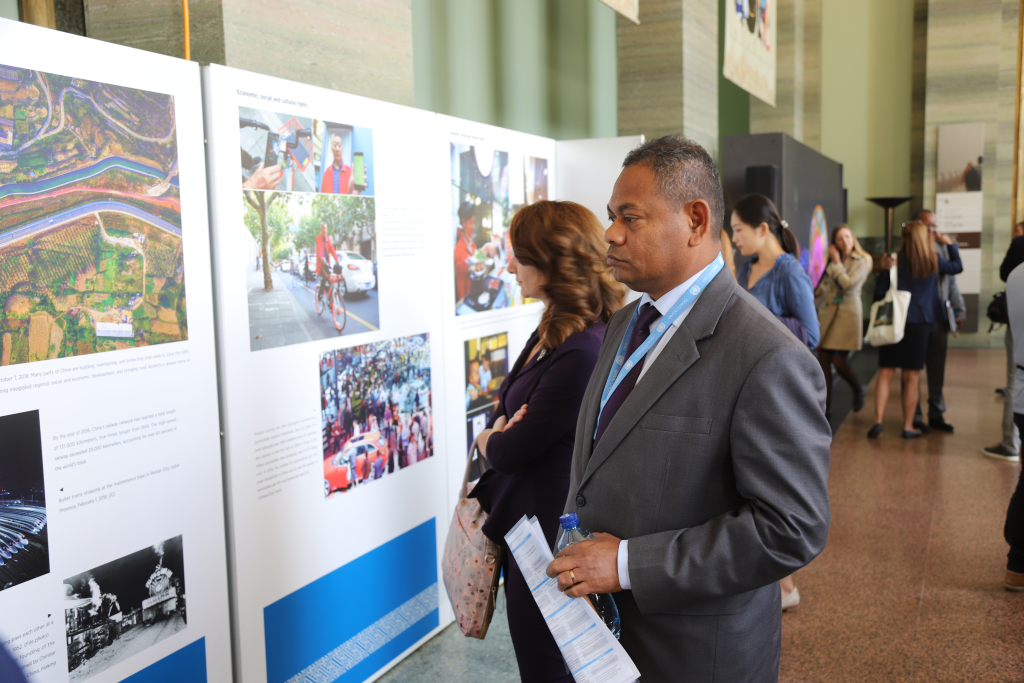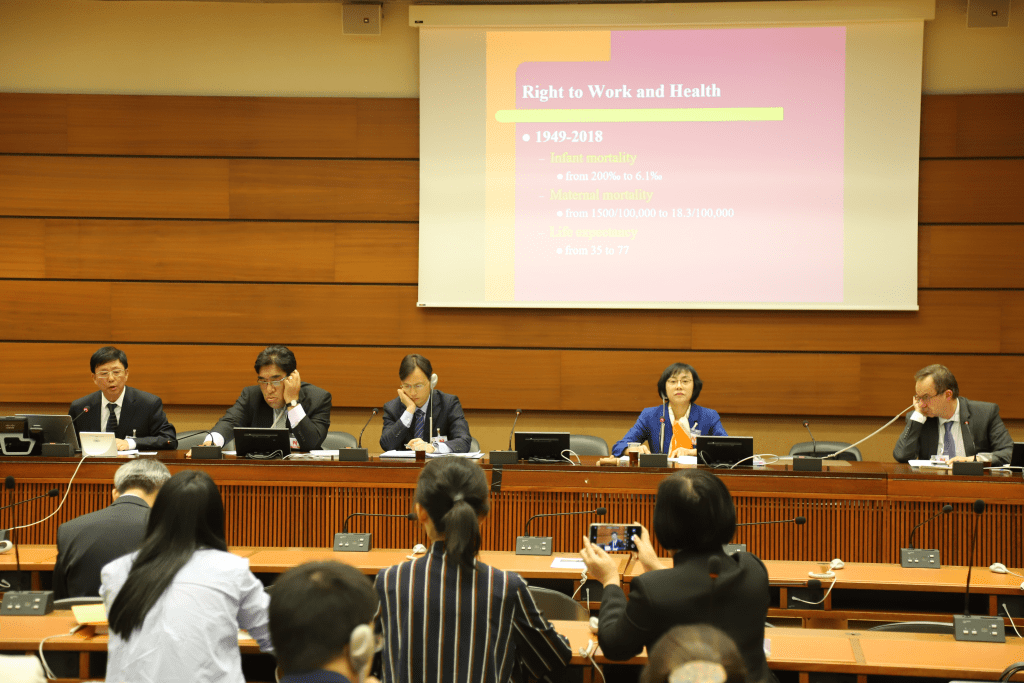How the 1989 Tiananmen Massacre Shaped China’s Approach to International Human Rights
How the 1989 Tiananmen Massacre Shaped China’s Approach to International Human Rights
Geoffrey Roberts, June 11, 2024

The Chinese government’s brutal massacre of protesters in Beijing’s Tiananmen Square on 3-4 June 1989 marked a major turning point in China’s relationship with human rights and international human rights advocates.
Tiananmen resulted in widespread international condemnation, the imposition of economic and diplomatic sanctions, and increased global scrutiny of China’s human rights record. In the aftermath, Western governments, particularly the United States and the European Community, imposed a raft of sanctions on China. These included the suspension of arms sales, the postponement of high-level official contacts with the Chinese government, and the shelving of economic aid programs to Beijing. As a result, China experienced a two-year decline in its credit rating, foreign investment, and export orders.
This mounting international condemnation signalled an important shift from the Cold War period, during which China’s human rights violations were the topic of little foreign criticism. Although U.S. Congress and NGOs such as Amnesty International had published reports on Beijing’s human rights abuses in the late 1970s and early 1980s, there was no serious attempt to hold China to account at the international level after it joined the UN system in 1971.
Two months after Tiananmen, China’s human rights record became the focus of significant international scrutiny during the August session of the UN Sub-Commission on Prevention of Discrimination and Protection of Minorities. Importantly, this session represented the first time that a permanent member of the UN Security Council has its human rights record criticised in a formal resolution. Although the language of the resolution was mild, it expressed concern over the human rights situation in China and made an appeal for clemency on behalf of protesters arrested following the massacre. Despite fervent arguments from Chinese diplomats that Tiananmen was an internal affair, the resolution was adopted by fifteen votes to nine.
China’s post-Tiananmen human rights strategy
The success of the UN Sub-Commission’s resolution was a significant blow for China. In response, China adopted a defensive strategy. In an attempt to ease international pressure and prevent further sanctions, the Chinese government made a series of tactical concessions, including lifting martial law in Beijing in January 1990, and releasing several political prisoners. These included Fang Lizhi (方励之), a renowned Chinese astrophysicist and dissident, and his wife, Li Shuxian (李淑娴), who had taken refuge in the US embassy in Beijing shortly after Tiananmen. In January 1989, Fang had written an open letter to Deng Xiaoping, China’s paramount leader, calling for the release of all political prisoners in China, including Wei Jingsheng (魏京生), the eminent dissident imprisoned during the Democracy Wall movement (1978-1981). In UN forums, Chinese diplomats honed their language and tactics during the period from 1990-1993. Critically, China’s adoption of this strategy coincided with a period of increasing domestic repression, including the trials of students and intellectuals arrested after Tiananmen, and the introduction of strict controls on Chinese media, education, and cultural institutions.
China’s post-Tiananmen strategy consisted of three key elements. First, China took aim at country-specific human rights monitoring by lobbying against resolutions critical of its human rights record. During the 1990 session of the UN Commission on Human Rights (UNCHR), for instance, the Chinese government sent a large delegation of over forty diplomats to lobby against a resolution on its human rights record, and dispatched its Foreign Minister, Qian Qichen (钱其琛), to Geneva in a show of force.
Chinese diplomats again sought to stifle scrutiny in 1991, when they faced a resolution on China’s human rights violations in Tibet at the August session of the UN Sub-Commission. The Chinese delegation lobbied vigorously against the resolution, and attempted to divert attention from its human rights abuses by screening a lengthy propaganda film on Tibet during a reception at its mission in Geneva.
A second key element of the Chinese government’s strategy was the formulation of its own distinctive discourse on human rights. This discourse appropriated the language of human rights and deployed cultural relativism as a defensive instrument to deflect scrutiny of Beijing’s human rights record. In October 1991, China published its first official White Paper on human rights. Its purpose was to blunt criticism by presenting the international community with “China’s basic position on and practice of human rights.” Issued by the State Council Information Office, a propaganda branch of the Chinese Communist Party (CCP), the White Paper challenged the universal basis of the international human rights regime by arguing that differences in history, culture, and levels of economic development, resulted in a different understanding and practice of human rights. It established a new hierarchy of rights, with the right to subsistence as the primary human right, and one that “without which all other rights are out of the question.” By arguing that the right to subsistence was threatened by social turmoil, and that it was an urgent task of the Chinese government to maintain national stability, the White Paper provided an implicit justification for Chinese authorities’ actions at Tiananmen.
Chinese diplomats wasted little time in putting this new discourse into practice. At the next session of the UNCHR in 1992, China’s Ambassador Fan Guoxiang argued that the promotion of human rights should be determined by “each individual country, in the light of its history, tradition, and level of economic development.”
The third key element of China’s strategy was its efforts to rally support from developing countries. This effort began in earnest in early 1992, when senior Chinese diplomats conducted a series of visits to Asian and African countries. During these visits, Chinese officials called for greater cooperation between China and developing states, and promised Beijing’s support for lucrative trade initiatives that would benefit both parties.
These efforts bore fruit during the 1992 session of the UNCHR, when China faced a draft resolution on its human rights abuses in Tibet. From the outset, the resolution faced stiff opposition from many African and Asian delegations, who arrived in Geneva with strict instructions from their governments to block its passage. During the vote, Pakistan introduced a procedural motion to scupper the resolution which was bolstered by supportive statements from an array of developing states, including Cuba, Syria, Libya, and Iran. As a result, the resolution failed to be adopted.

An event, titled “70 Years of the Development of Human Rights in New China,” held by China Society for Human Rights Studies (CSHRS) at the Palais des Nations in Geneva, 2019. Photo: Xinhua
The 1993 UN World Conference on Human Rights
Another pivotal moment in the evolution of China’s human rights position was the 1993 UN World Conference on Human Rights in Vienna, Austria. There, China deployed the full range of strategies that it had developed since Tiananmen. Vienna also marked a key stage in China’s efforts to mobilise support from developing states as a counterweight to the Western democracies and their allies.
Vienna was an important event for the Chinese government. In an effort to improve its international image after Tiananmen, Beijing had submitted a bid to host the year 2000 Summer Olympics, and was anxious to prevent international criticism of its human rights record from damaging its application. To avert such an outcome, China sent a large delegation to Vienna consisting of Deputy Foreign Minister Liu Huaqiu (刘华秋), Ambassador Jin Yongjian (金永健), China’s Permanent Representative to the UN in Geneva, and twenty-six diplomatic officials.
The Chinese delegation sought to limit the participation of human rights and civil society actors in the conference. It lobbied against the inclusion of human rights NGOs in the drafting committee, the body responsible for producing the conference final document, and threatened to boycott the committee if NGOs were present. Similarly, Chinese officials attempted to block the Dalai Lama, the exiled spiritual leader of Tibet, from participating in the conference, and even threatened to withdraw from the conference if the Dalai Lama was permitted to attend.
China’s efforts to restrict NGO participation was not confined to the drafting committee. It also deployed a new Government-Organised Non-Governmental Organisation (GONGO) to Vienna, which has since become a ubiquitous feature of its human rights practice. This organisation was the China Society for Human Rights Studies (CSHRS). Created in January 1993, its representatives were former Chinese diplomats with close ties to CCP, such as Li Yuanchao (李源潮), the General-Secretary of the Communist Youth League. Indeed, its Chairman, Zhu Muzhi (朱穆之), also served in the Chinese government’s propaganda department as the founding director of the State Council Information Office. During the conference, a CSHRS representative attempted to prevent Chinese human rights NGOs from accessing the main plenary sessions by taking their designated passes to enter the conference building. Since only a limited number of these passes were available, this action represented a deliberate effort to obstruct legitimate Chinese human rights groups from participating in the conference.
No less significant were the Chinese government’s efforts to prevent the establishment of new UN human rights mechanisms, especially a UN High Commissioner for Human Rights. Chinese officials argued that it was not necessary to establish new mechanisms for the protection of human rights, including a UN High Commissioner for Human Rights. Instead, it asserted that UN human rights bodies should be “gradually streamlined” to “avoid the waste of human, material and financial resources.” To this end, China led a group of Asian and developing countries, including Burma, Cuba, Iran, and Vietnam, in attempting to block the proposal for the establishment of a UN High Commissioner for Human Rights.
Tiananmen’s long shadow
Tiananmen had a profound impact on China’s approach to international human rights. In the aftermath, the Chinese government sought to counter international scrutiny by adopting a defensive strategy. Aspects of this strategy continue to inform China’s human rights practices under the leadership of President Xi Jinping. Although Beijing is now far more assertive in challenging UN human rights institutions and norms, it continues to resist any attempts to scrutinise its human rights record. Similarly, the Chinese government’s efforts to promote its own interpretation of human rights, to obstruct the establishment of new human rights instruments, and to restrict the participation of NGOs have become the hallmarks of its human rights position. Chinese GONGOs like the CSHRS are a mainstay of UN human rights sessions, and harass and intimidate human rights activists in the halls of UN buildings. Today, developing countries are Beijing’s most vocal supporters and regularly shield China from scrutiny and vote in support of its resolutions at the UN.
Geoffrey Roberts is a PhD Candidate at the Department of Politics, Media and Philosophy at La Trobe University, Australia.
Also by Geoffrey Roberts:
One Chinese GONGO’s War against Global Human Rights, May 1, 2020.





Comments are closed.